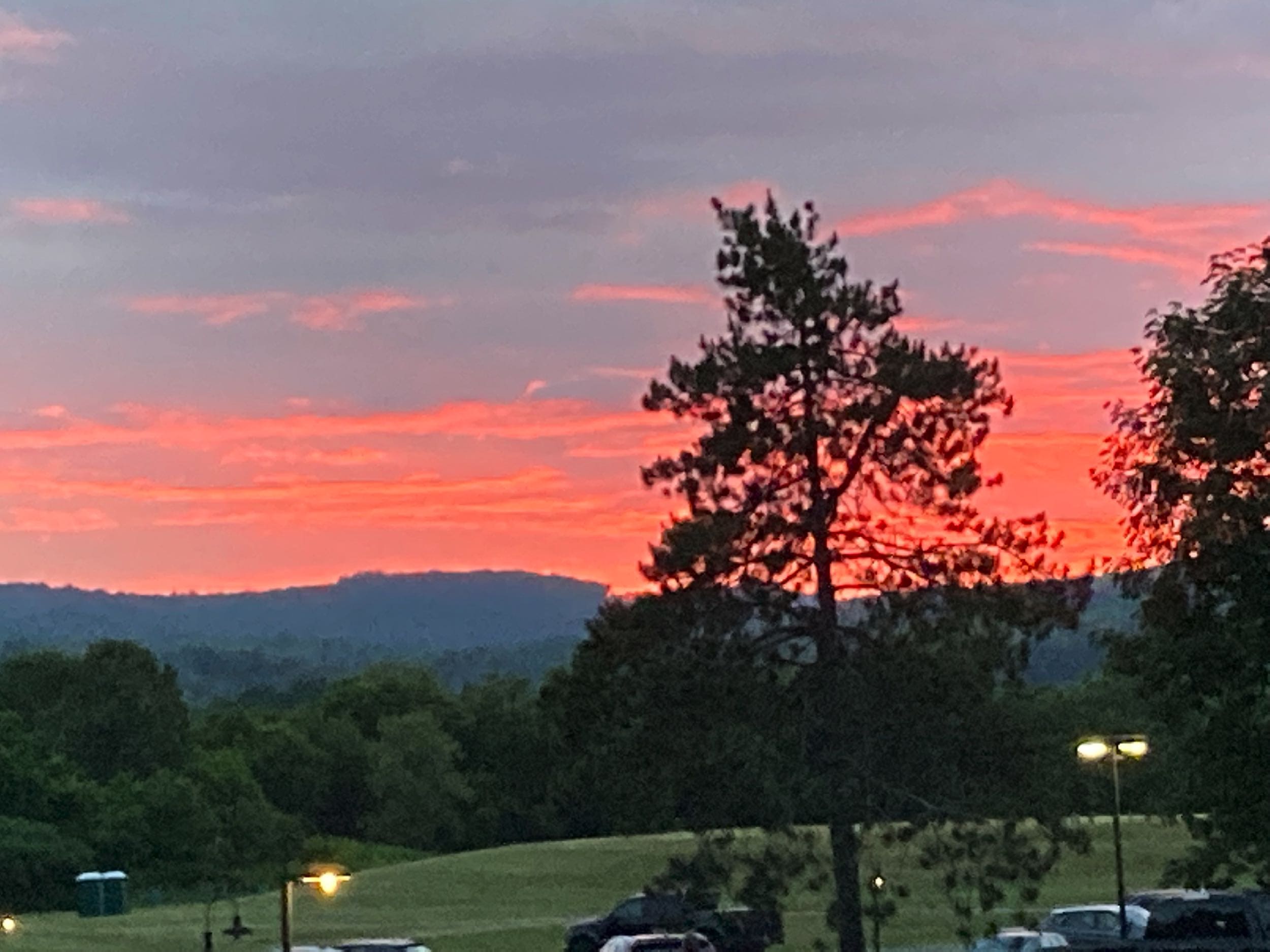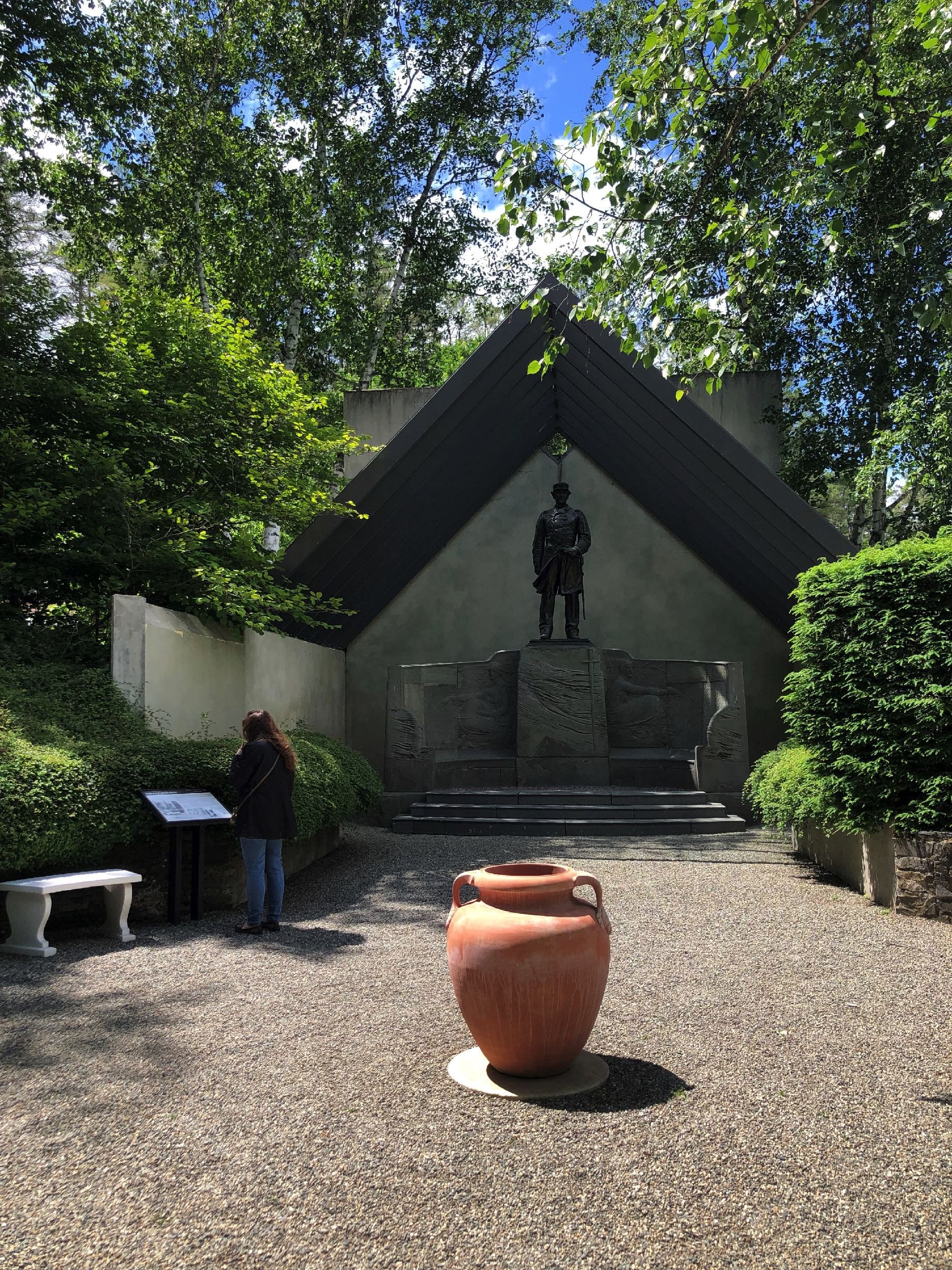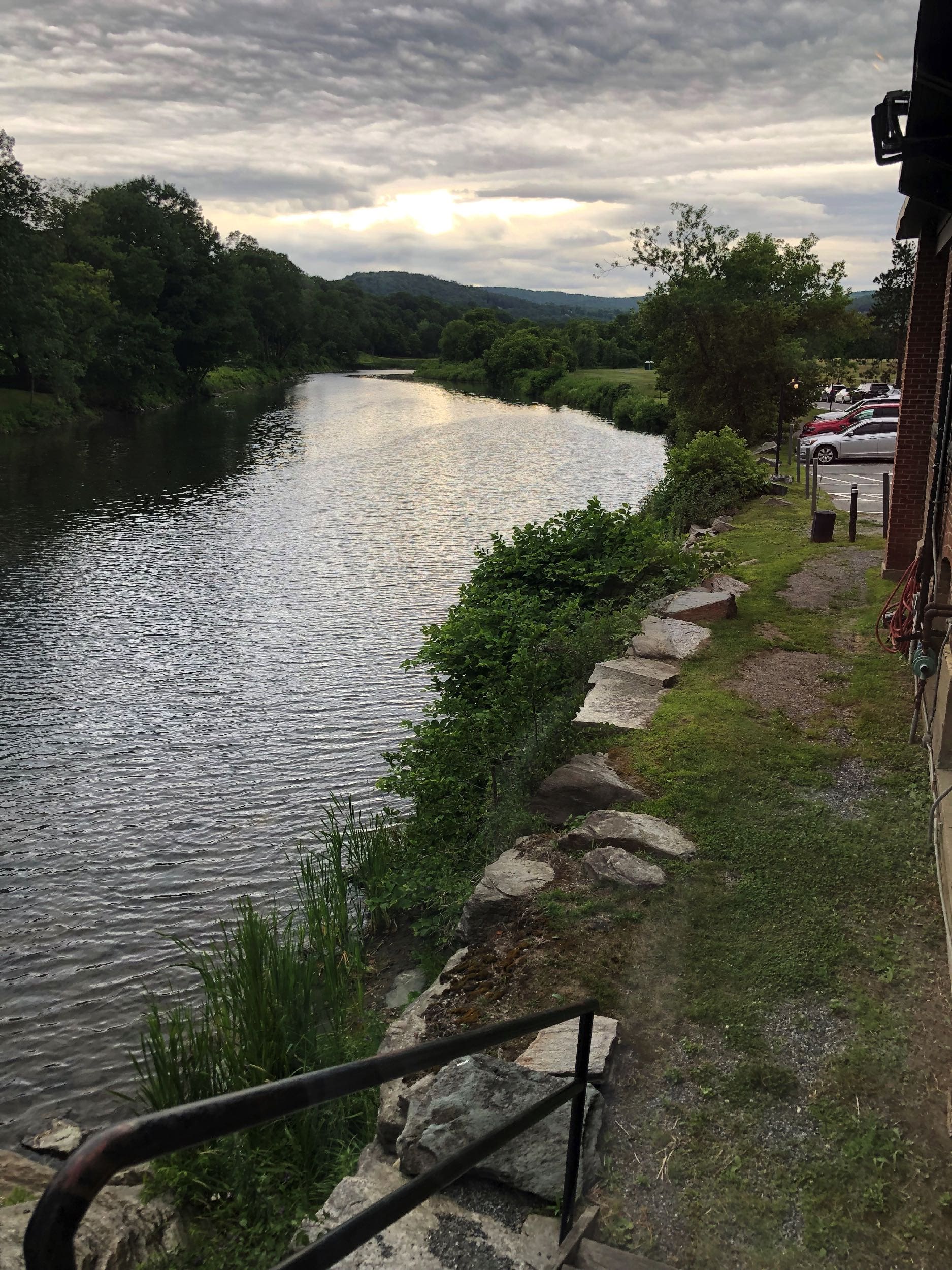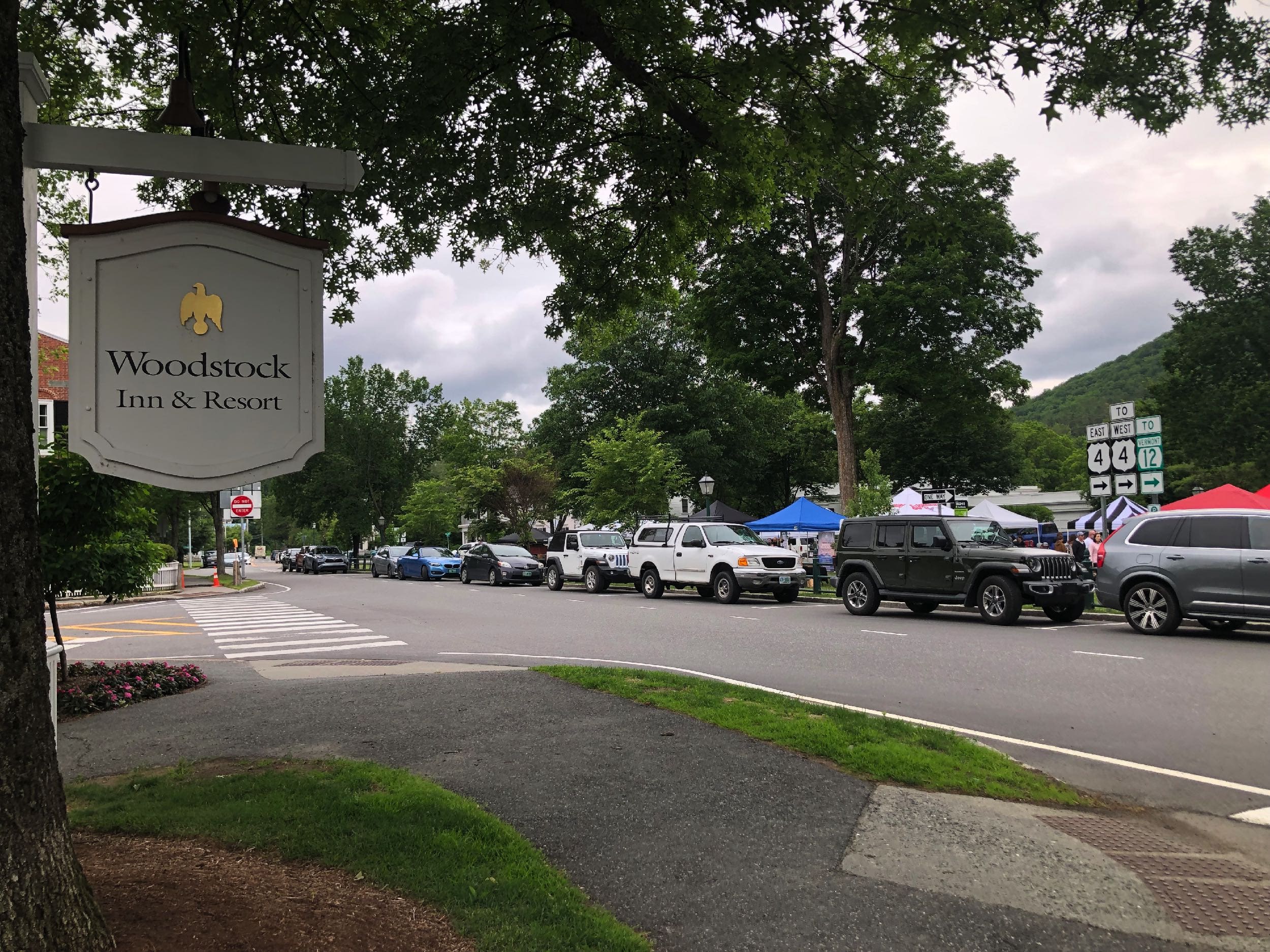One impact of these recent Covid years is how open we became to new ways to travel. From road trips to airstreams, many Texans, for example, re-visited nearby favorites such as NOLA and Santa Fe. As restrictions lifted, we remembered further afield domestic destinations once relegated to a back burner in our priorities and almost forgotten.
That’s how I finally came to Vermont, the state what waited patiently, one of my back-burner spots. With only a few days available after a siege of work, getting away somewhere different to me was long overdue. Once again, I was reminded that no matter how much you study a place from afar, being there is better and different in unexpected ways. This was surely true of my visit to Vermont.
After a crowded but eventless flight to Boston followed by a 2.5-hour rental-car drive, the town of Woodstock in Vermont was the payoff. (Note: There’s also a Woodstock, New York, where the famous rock festival happened.) The Woodstock Inn was a perfect nest for exploring new places and restoring my depleted energy.
Here are, in no particular order, the first five of my discoveries to share with you, experiences and observations that made the travel well worth my while:
- First, a weather report, given the sweltering heat of Texas: June is typically a rainy month. Light drizzle and cloud coverlets minimized harsh sunshine. The welcomed results were chilly mornings and comfortable afternoons suitable for shorts, cotton and linen fabrics.
- Vermont’s summer countryside is every shade of green from deep forest blue greens to sparkly lime and yellow greens. It is lush with trees, rivers, and grass. The name Vermont derives from the French words for “green” and “mountains.” Hills are everywhere. A small mountain range dissects the state vertically. Vermont could not have a more suitable name chosen around the time the area became a state.
- In Texas, lovers of fresh-cut flowers pay a small fortune for peonies which are rare. In Vermont’s summertime, they grow in abundance. Residents simply step outside their homes and pick them off abundant bushes in every flowerbed. Peonies may be ordinary to a Vermont native, but to a Texan their shades of pink, magenta, and white are rich spectacles. Being surrounded by them was an unexpected treat.
- The lone New Hampshire National Historical Park is just over the Vermont border 30 minutes from Woodstock and outside the town of Windsor, Vermont. The former home of the sculpture Augustus Saint-Gaudens, it is the only historical US park dedicated to a sculptor, too. Think you Texans don’t know this guy? Well, you may have to reach a bit to plug in, but his work and impact on the art of sculpture is well worth a tour. “Aspet,” the name of his NH home is the expansive site of the park. Beautiful vistas, gardens, exhibits, and several of his more iconic pieces are on view. Considered the most famous American sculptor, the legendary French sculptor Paul Rodin simply kneeled in homage to one of ASG’s works on view in Paris.
- About 20 minutes from Woodstock sits The King Arthur Baking Company, a holy grail for the food lovers among us. Named in honor of King Arthur and his Knights of the Roundtable the company captures the camaraderie and ethos of the legend. The center houses an excellent café, cooking classes, and a cooking store with a range of tools and products to create a fun excursion for everyone. Just don’t expect to see flour milled. Milling happens elsewhere.
For Part II, click here.
If you would like further information or more domestic travel ideas about New England, New Orleans, Santa Fe or international destinations, please fill out or contact form. You may also reach out to me or one of our other advisors. We would love to provide you with a VIP experience at The Vermont Inn or elsewhere, including restaurant recommendations.
- Streams and rivers are everywhere, making beautiful rushing-water noises. They peep in and out of sight through the trees as you muster down every highway and byway. Can you say, “Picturesque”? That’s Vermont, at least, where I was.
- Slightly beyond the midtown Woodstock, across one of the rivers, is Vermont’s only National Park. It comes in two parts, a large hill with houses owned by a string of the town’s once most prominent figures Mary and Laurence Rockefeller. The former residence is connected to the Billings Farm (owned by Mary’s grandfather), a working dairy farm and museum. Not to be missed, the whole set up beautifully explores farm life in multiple ways making it a great outing for all generations to enjoy.
- Conservation is a united priority. At one time, all the beautiful trees I saw so happily growing everywhere didn’t exist. They were cut down to mine potash. Today, the town of Woodstock works together, public and private sectors, to ensure that conservation and people live together in harmony and appreciation. There are 30 miles of breathtaking hiking trails around the town, a town of little more than 3,000. The founder of the farm and estate described above Mr. Marsh wrote a now famous book on conversation in the early 1800s which few paid any attention to at the time. But he passed along the legacy and both her grandfather Billings along with Mary and Laurence Rockefeller picked up the torch.
- I enjoyed the vibe at the Woodstock Inn. Guests were having a good time. They were relaxed, happy, and friendly. So were the staff. They acted glad to see everyone. The hotel’s traditional décor is charming, tastefully Colonial in style. We enjoyed every minute of it. For breakfast each morning, there was a line-up of guests who could hardly wait until the dining room opened. Besides an inviting display of various egg dishes, sausages, perfectly cooked bacon and so much more, the large cinnamon rolls draped in a maple-sugar glaze sent me to heaven every morning. Damn the diet! After all, it was only a few days.
- One brief history comment: From our Woodstock home base, to reach the Saint-Gaudens National Historic Park, the drive passes through another small town Windsor, Vermont. Historically important, Windsor where the state’s constitution was signed. The town sits next to the Connecticut River. Cars must pass through one of New England’s many covered bridges. This one was first built in 1866 and is one of the longest covered bridges in the world. Vermont was the 14th state to join the USA and the first to abolish adult slavery.




